Every year, the Minangkabau people in West Sumatra, Indonesia, organize a bull racing festival to celebrate the harvest at the end of the farming season. This fierce bull racing festival is known as Pacu Jawi.
The Pacu Jawi bull racing tradition has been maintained for over 400 years. The winning bulls are sold at auction and bred for future generations. This festival is an integral part of the Minangkabau lifestyle and is eagerly anticipated at the end of each harvest season.
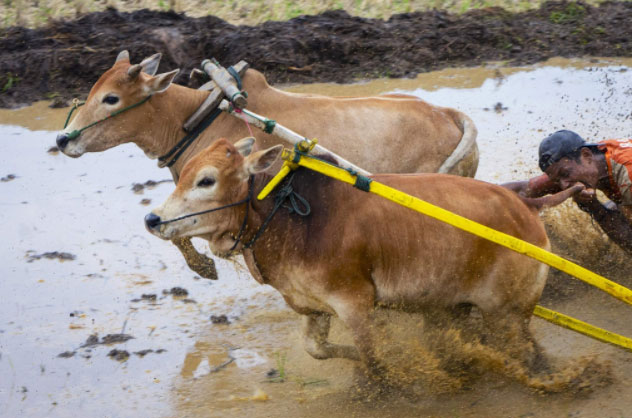
In West Sumatra, a traditional bull race is held in rice fields after the harvest, resuming after the Covid-19 pandemic. However, in these traditional races across the rice fields, the bulls cannot be controlled with sticks.
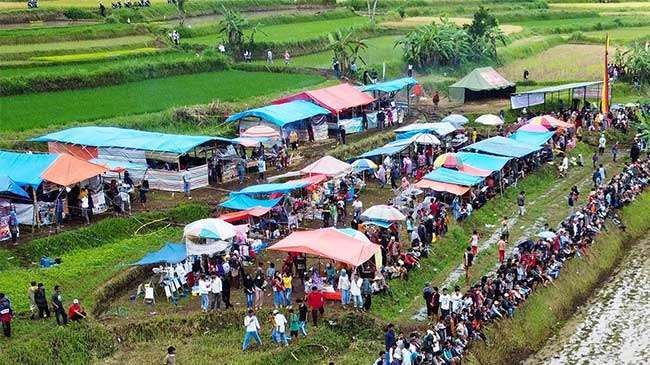
An essential feature of Pacu Jawi is the muddy terrain, and the racers do not hesitate to dive right into it.
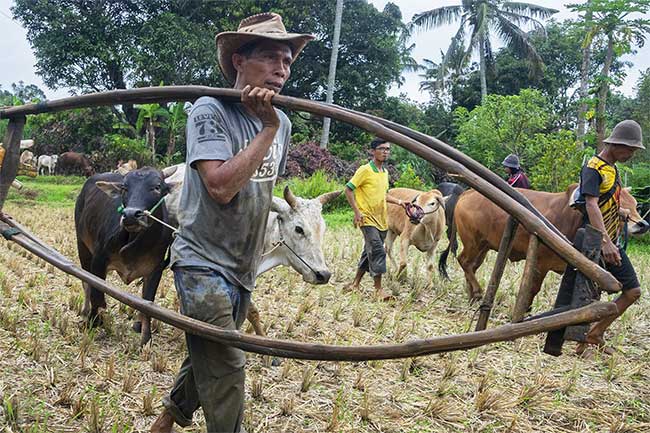
Maintaining balance is not easy – the racers must hold onto the tails of two bulls throughout the competition. They use their hands, feet, mouths, and even bite the tails when necessary to steer the bulls in the right direction, make them run faster, and reach the finish line first.
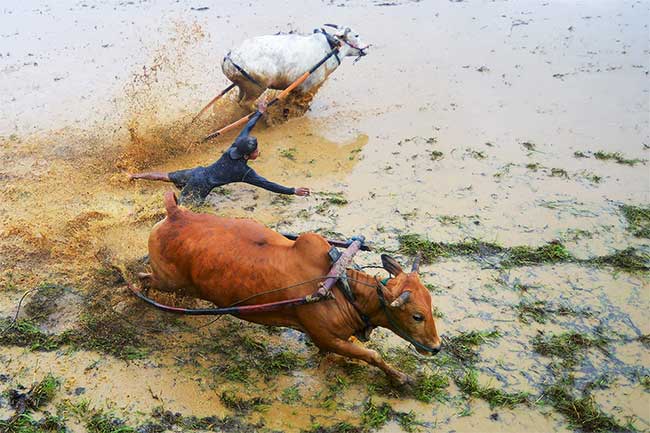
If the bulls cannot be kept together and run in different directions, the racer will fall into the mud.
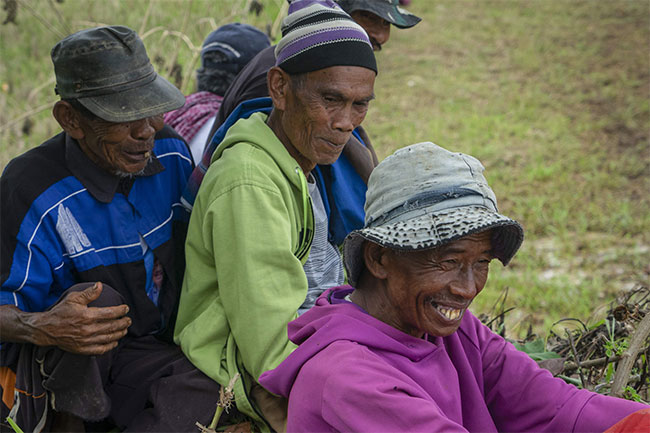
According to the competition rules, sticks or whips are not allowed to “drive” the bulls. The barefoot racers stand on a wooden plank and hold onto the tails of the bulls along a racecourse of about 250 meters.
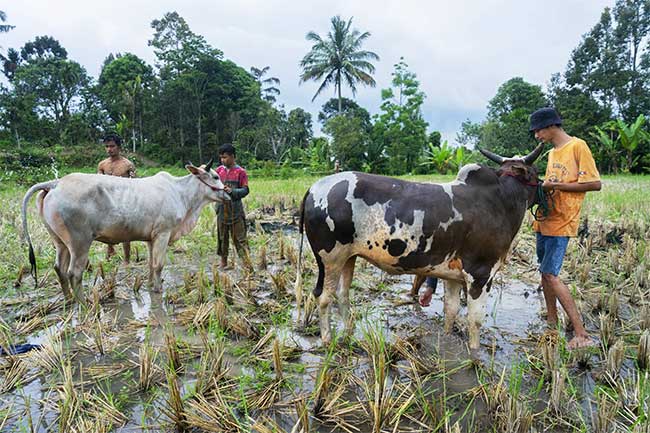
The only way to accelerate is to bite the tail of the bull.
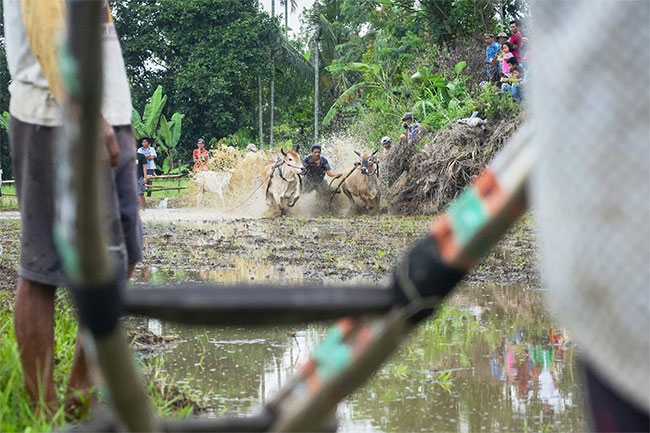
Only strong bulls are allowed to participate in the Indonesian bull racing competition. Most of them are well-trained and have been carefully cared for prior to the contest.
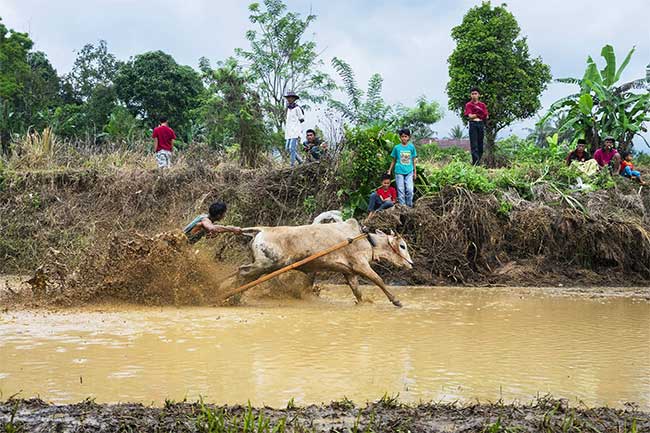
After the first few seconds of the race, the racers are covered in mud from head to toe.
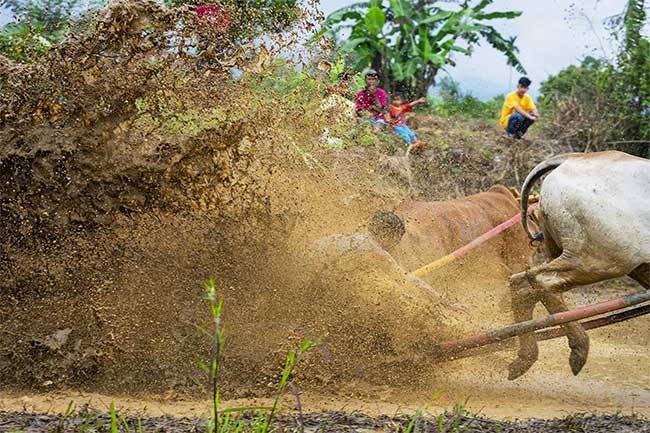
The traditional bull racing festival held annually has become a cultural highlight of Indonesia. The only reward for the winning racer is the honor and admiration of others.
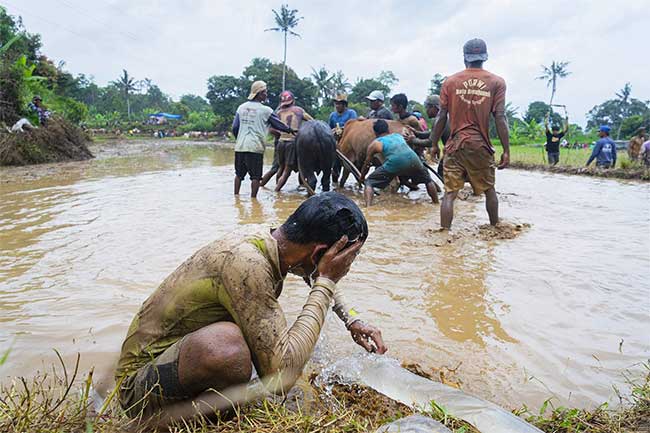
Through bull racing, the winning bulls can be sold at high prices. The proceeds will be used as investment capital for planting and breeding in the next season.
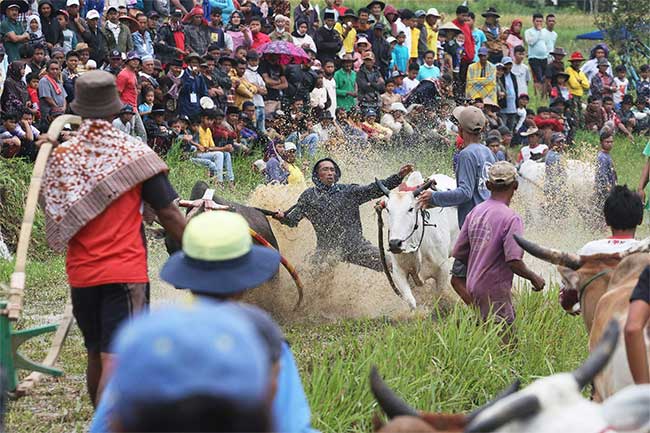
The festival attracts thousands of locals who gather to watch the thrilling bull races. Among the spectators are many traders.


















































